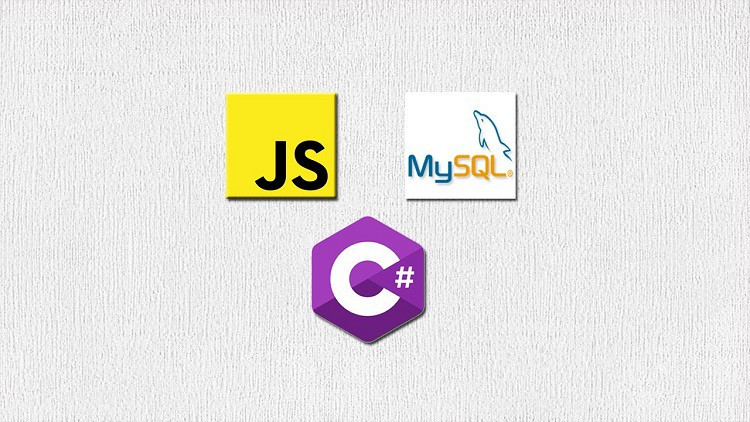In the realm of programming, logical operators play a crucial role in decision-making and control flow. They enable developers to create complex conditions and make decisions based on the truth or falsehood of expressions. C# (C Sharp), a versatile and powerful programming language developed by Microsoft, offers a rich set of logical operators that allow developers to manipulate boolean values with ease.

with hands-on learning.
get the skills and confidence to land your next move.
Understanding Boolean Values
Before delving into C# logical operators, it’s essential to understand the foundation they operate on: boolean values. In C#, a boolean is a data type that can only have two values: true or false. Boolean values are the bedrock of logical expressions and are at the heart of decision-making in programming.
public class LogicalOperators
{
public static void Main(string[] args)
{
bool isTrue = true;
bool isFalse = false;
System.Console.WriteLine($"isTrue: {isTrue}, isFalse: {isFalse}");
// Output: isTrue: True, isFalse: False
}
}The Basic Logical Operators
C# provides three fundamental logical operators: && (logical AND), || (logical OR), and ! (logical NOT). Let’s explore each of them in detail.
AND Operator (&&)
The AND operator, denoted by &&, returns true if both operands are true; otherwise, it returns false. Let’s consider a practical example:
public class LogicalOperators
{
public static void Main(string[] args)
{
bool isUserAuthenticated = true;
bool hasAdminPrivileges = true;
if (isUserAuthenticated && hasAdminPrivileges)
{
System.Console.WriteLine("Access granted. Welcome, Admin!");
}
else
{
System.Console.WriteLine("Access denied. Insufficient privileges.");
}
}
}In this example, the && operator ensures that both isUserAuthenticated and hasAdminPrivileges are true for the access to be granted.
OR Operator (||)
The OR operator, represented by ||, returns true if at least one of the operands is true. Here’s an example:
public class LogicalOperators
{
public static void Main(string[] args)
{
bool isWeekend = false;
bool isHoliday = true;
if (isWeekend || isHoliday)
{
System.Console.WriteLine("It's time to relax and enjoy!");
}
else
{
System.Console.WriteLine("Back to work!");
}
}
}In this scenario, the || operator triggers the relaxation message if either isWeekend or isHoliday is true.
NOT Operator (!)
The NOT operator, expressed by !, negates the boolean value of its operand. If the operand is true, the NOT operator makes it false, and vice versa. Consider the following:
public class LogicalOperators
{
public static void Main(string[] args)
{
bool isLoggedIn = false;
if (!isLoggedIn) // if is not logged in
{
System.Console.WriteLine("Please log in to access the system.");
}
else
{
System.Console.WriteLine("Welcome back!");
}
}
}Here, the ! operator checks if the user is not logged in, prompting a login message if true.
Combining Logical Operators
C# allows developers to combine logical operators to create complex conditions. This flexibility is crucial for building robust decision-making structures in code. Let’s explore a scenario involving multiple operators:
public class LogicalOperators
{
public static void Main(string[] args)
{
int age = 25;
bool isStudent = true;
if ((age >= 18 && age <= 24) && isStudent)
{
System.Console.WriteLine("This person is a student between 18 and 24 years old.");
}
else
{
System.Console.WriteLine("This person does not meet the specified criteria.");
}
}
}Here, the combination of && operators ensures that the person is both within the age range and a student.
Complex Expressions and Precedence
Logical operators can be combined to form complex expressions, and it’s essential to understand their precedence, which determines the order of evaluation. In C#, logical NOT has the highest precedence, followed by logical AND, and then logical OR.
Consider the following example:
public class LogicalOperators
{
public static void Main(string[] args)
{
bool condition1 = true;
bool condition2 = false;
bool condition3 = true;
if (condition1 || condition2 && !condition3)
{
System.Console.WriteLine("Complex expression evaluated correctly!");
}
else
{
System.Console.WriteLine("This line won't be executed");
}
}
}In this example, the output will be “Complex expression evaluated correctly!” because the logical NOT is evaluated first, followed by logical AND, and then logical OR.
Short-Circuiting
One interesting feature of logical operators in C# is short-circuiting. This means that if the result of an expression can be determined by evaluating only part of it, the remaining evaluation is skipped.
Short-Circuiting with Logical AND (&&)
Consider the following example:
public class LogicalOperators
{
public static void Main(string[] args)
{
bool condition1 = false;
bool condition2 = true;
if (condition1 && method())
{
System.Console.WriteLine("This line won't be executed");
}
else
{
System.Console.WriteLine("Short-circuiting with Logical AND worked!");
}
}
static bool method()
{
return true;
}
}In this case, method() won’t be called because the first condition is false. Since the result of the entire expression can be determined without evaluating the second part, C# short-circuits the evaluation.
Short-Circuiting with Logical OR (||)
Similarly, logical OR also exhibits short-circuiting behavior:
public class LogicalOperators
{
public static void Main(string[] args)
{
bool condition1 = true;
bool condition2 = false;
if (condition1 || method())
{
System.Console.WriteLine("Short-circuiting with Logical OR worked!");
}
else
{
System.Console.WriteLine("This line won't be executed");
}
}
static bool method()
{
return true;
}
}In this example, method() won’t be called because the first condition is true. The entire expression is already true, so there’s no need to evaluate the second part.
Understanding short-circuiting is crucial for writing efficient code, especially when dealing with potentially expensive operations or method calls within conditional expressions.
Conclusion
Logical operators are fundamental building blocks in C# programming, enabling developers to create expressive and efficient conditional logic. Whether you’re crafting simple if statements or complex conditions, a solid understanding of logical operators is essential for writing robust and maintainable code. By mastering these operators and incorporating best practices, you’ll enhance the clarity, readability, and performance of your C# applications.
Related:







